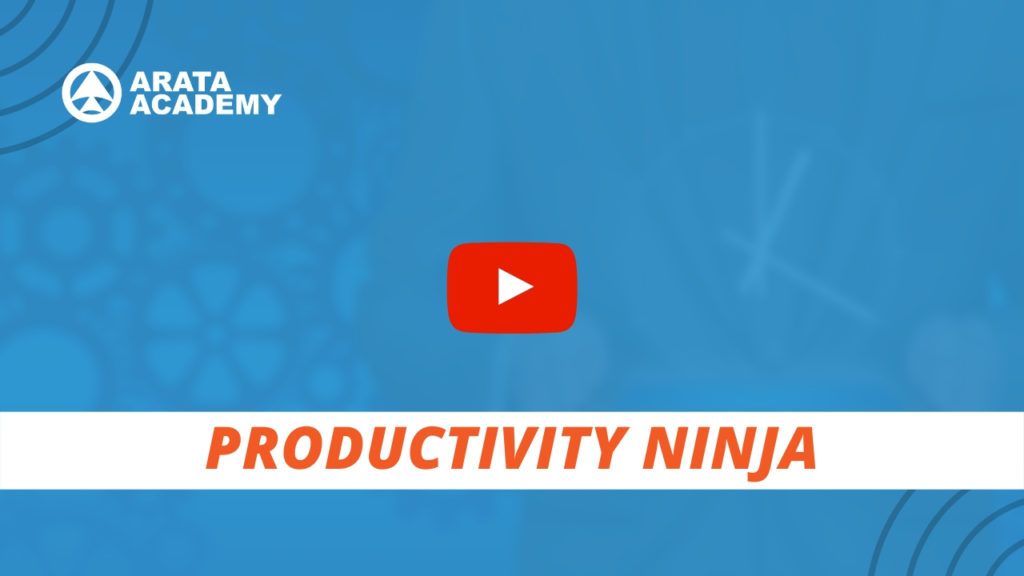Hello! Seiiti Arata. If you have a lot of important things to do, but you are procrastinating (that is, leaving everything for later), you need to know the seventy percent rule. This rule was created by the richest man in the world so that you can reduce your procrastination, take action and achieve your greatest goals.
The seventy percent rule makes you act even when facing uncertainty, even feeling fear, even when you don’t want to act. With this rule, instead of waiting to be absolutely sure about something to start taking action, you take action when you are only seventy percent sure. I will explain in detail how this works and why this is the rule used in the most valuable company in the world today.
Stay tuned to what I’m going to say now, because with this simple productivity technique you can overcome one of the biggest obstacles to the realization of your biggest dreams.
The richest man in the world recommends that you take action when you are 70% sure, to reach escape velocity, get feedback and correct mistakes along the way.
In a letter to Amazon shareholders, Jeff Bezos, one of the richest men in the world, recommended that when you are seventy percent sure about what to do, you should simply take action and see what happens.
He said: “Most decisions should probably be made with somewhere around 70% of the information you wish you had. If you wait for 90%, in most cases, you’re probably being slow. Plus, either way, you need to be good at quickly recognizing and correcting bad decisions. If you’re good at course correcting, being wrong may be less costly than you think, whereas being slow is going to be expensive for sure”.
If you ask some people why they are procrastinating to do this or that, many of them will answer that they do not take action because they are not sure that that is the right way to go.
Why don’t you look for a new job?
– Because I’m not 100% sure I want to quit my job.
Why don’t you start a course to learn a new skill?
– Because I’m not sure that’s what I want for my life.
Why don’t you break up from that dysfunctional relationship?
– Because I don’t know if I will ever find anyone better.
Usually we procrastinate until we are ninety percent or one hundred percent sure about what we want to do.
The school taught us that we should only make decisions when we have a high degree of certainty. If you get only seventy percent of a test at school, you are considered to be just a mediocre student.
But in real life, outside the school environment, if you are correct on seventy percent of the decisions you make, is that a bad thing?
Think about it like this: if you had tried to do everything you always wanted to do and you were seventy percent right, what would your life be like today? Would you be sad for the thirty percent you missed or happy for the seventy percent you got right?
Do not wait to be sure to start taking action or you will miss out on many opportunities. Take action, see what works and quickly adjust your actions.
Real life is not like a school exam, in which we mark the right or wrong option. If you take action even if you are not 100% sure about what you are doing, you can correct your actions as soon as you get the first results.
If you try a new job and you don’t like it, you can look for another one. If you start a new relationship and it doesn’t work, you can look for another one. If you start a new course and you don’t like it, you can give up and try another one.
Even if it has an emotional or financial cost, it will still be less costly than procrastinating, wasting months and sometimes even years without taking action.
How many opportunities have you missed by not taking action when you weren’t sure what to do? The seventy percent rule makes sure you don’t waste these opportunities and makes you no longer afraid of making mistakes.
Losing the fear of making mistakes is one of the secrets to reduce procrastination. Don’t worry about what others will think of you and focus only on your next action.
We often procrastinate a decision for fear of making mistakes. We are afraid of looking ridiculous in the new job, to appear to have failed in the new relationship, or to look unable to learn a new skill. We are concerned with what other people will think of us in the event of a failure.
This fear does not make sense for two reasons.
The first reason is that when we think “if I fail, what will other people think?”, The same question also means “and if I succeed, what will other people think?”. If there is a possibility that you will fail in your decision, there is also a possibility that you will be successful.
Generally, the benefit if you succeed is proportional or even greater than the loss if you fail. And so, one factor cancels out the other, much like seeing the glass half empty or half full. It is a mistake of logical reasoning that you only consider the risk of failure. You also need to calculate what the prize is in being successful. Furthermore, doing nothing is also a choice. If you do nothing, it is almost certain that you will not receive the benefits you would have had if you had tried successfully.
The second reason is that other people are not so concerned with your life. This is a distorted view of reality. For us, our actions are the center of the universe, but for other people, our actions are just another little piece of information in a world of things that happens to them. Other people are more concerned with their problems. We are much less important to them than we think we are.
Of course, the people closest to you, like family and close friends… they will care more about what happens to you. But these are people who will like you regardless of the success or failure of your actions. They will probably even be inspired by you for overcoming procrastination, for taking action.
Procrastination is in our genes and has helped us to evolve, but the 70% rule can overcome genetics.
Procrastination is the biggest obstacle for you to achieve your big goals. And even though you know that, you continue to procrastinate.
Why does it happen? One explanation was given in a 2014 study. The scientists concluded that there is a genetic component in procrastination.
We have evolved to act in the short term. Our ancestors needed to flee from predators and find the food of the day. So we expect the situation to be urgent to start taking action, procrastinating everything that can be left for later.
Yes, we are genetically programmed to act in emergencies and to escape stressful situations. But now we don’t have to hunt for the day’s food anymore. Instead, we need to think about the long term as well.
But genetics is not a definitive sentence: by using the seventy percent rule, you can greatly reduce your procrastination.
Think of some big goal that you are procrastinating on. Now ask yourself: why are you procrastinating? Is it for fear of looking like a loser in front of others? Is it because you’re not one hundred percent sure about what you want?
In any case, try to start acting anyway. If you’re afraid of failure, take action with fear. If you’re not one hundred percent sure, take action when you’re seventy percent certain.
Have the courage to act despite fear and uncertainty. Action is the only remedy against procrastination.
Whenever you find yourself procrastinating, ask yourself, “Am I at least seventy percent sure I want to do this?”
Am I seventy percent sure I want to look for a new job? Am I seventy percent sure I want a new relationship? Am I seventy percent sure I want to take this course?
If the answer is yes, take action immediately. Have the courage to take action even despite fear of failure, to take action even with the uncertainty that this is what you really want.
In doing so, two situations can happen. The first situation is that everything is going to work out. If so, great. The second situation is that something could go wrong. And then you will have the chance to correct it, to try something else, to at least be sure now that it was not what you wanted.
In any situation, the options are much better than spending your life procrastinating, postponing your decisions, thinking about what the future might have been like if you had acted.
The seventy percent rule is an excellent technique for reducing your procrastination, but it is not the only one. There is an entire arsenal of tools that you can use to procrastinate less, act more and become a true productivity ninja.
That’s why I invite you to watch a special class on the Productivity Ninja course on time management. In this class, you will learn to master your schedules so you never again have to say you don’t have time for anything. If you are seventy percent sure you want to manage your time better, then act right now and visit this link to see the special Productivity Ninja class.

